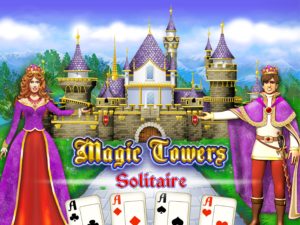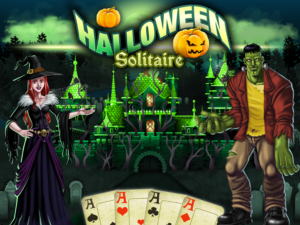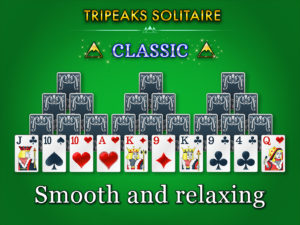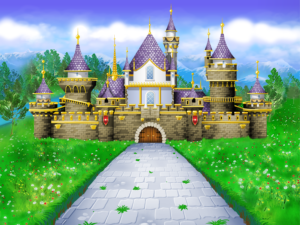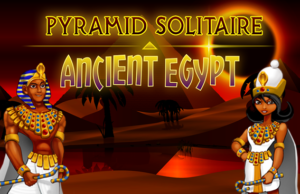On The Importance of Brand Consistency
Don’t judge a book by its cover – or, perhaps, you should.
You can tell a lot from a business from its consistency of branding. It’s more than quality pictures, games and text, it’s about style and how that carries on through the company from the game itself to the artwork.
For us at Glowing Eye Games, we love attention to detail and we love the little things. They are those subtle little morsels you might not even notice – and that’s the best part. Most of the time, you’re not meant to notice each that playing card is tailored to the theme of the game or how the load screen images have their own take on our logo. It’s just part of the overall experience and allows the game to be seamlessly immersive. You’d definitely notice if the background wasn’t quite right or if the sounds were discordant to the images.
These delightful details are handmade at the point of the game’s origin. Halloween Tripeaks has Dracula as the King, the Witch as the Queen and Frankenstein’s Monster as the Jack, whereas Magic Towers has a regal King, majestic Queen and princely Jack. Our most popular card game, Pyramid Solitaire: Ancient Egypt is entirely Egyptian themed with appropriate cards, font and background. It’s all about building the scene and creating an atmosphere our customers want to spend time in. This level of detail reflects the consistency to our brand and within our company, as each game is completed to the highest level of quality.
But it’s not just about logos and artwork, it’s about our players and respecting their own individuality. You may have noticed by now some of our games are the same game, just in different coats. Let’s take Tri-Peaks solitaire for example. Halloween, Magic Towers, Christmas and classic are all versions of Tri-Peaks with the same principles and same gameplay, however the key difference is that they target different types of people. We want everyone to enjoy the game and we don’t want anyone to feel they have to conform, bear flashy themes they don’t want or experience the game in any other way than how they would want to play it. We respect those who love the simplicity of our classic version of Tri-Peaks solitaire, just as much as our customers who love Christmas and jump on the chance to have a festive theme. It’s lovely that people still play it during the summer months! Similarly the same goes for Halloween, with ghoulish backgrounds and spooky sounds, and Magic Towers, which is the most calming of the four with an animated sky of passing clouds and twittering birds. Whichever game our customers prefer, they can guarantee they’ll be getting the same attention to detail and consistency of brand, as they would with any of our other games.
The point here is this: customers love to be immersed and they can tell immediately if something is made with care. If you’re a game developer or even a marketer, remember to pay attention to the little things, because, after all, they make up the whole. If you look after those details, they can help make your game an overall success.

